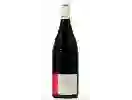
Winery Antoine LamarcqueRéserve Cairanne Côtes du Rhône Villages
This wine generally goes well with beef, game (deer, venison) or lamb.
Food and wine pairings with Réserve Cairanne Côtes du Rhône Villages
Pairings that work perfectly with Réserve Cairanne Côtes du Rhône Villages
Original food and wine pairings with Réserve Cairanne Côtes du Rhône Villages
The Réserve Cairanne Côtes du Rhône Villages of Winery Antoine Lamarcque matches generally quite well with dishes of beef, lamb or game (deer, venison) such as recipes of beef bourguignon in the oven of nanou, steamed lamb shoulder with cumin and coriander or duck with olives.
Details and technical informations about Winery Antoine Lamarcque's Réserve Cairanne Côtes du Rhône Villages.
Discover the grape variety: Viognier
White Viognier is a grape variety that originated in France (Rhone Valley). It produces a variety of grape specially used for wine making. It is rare to find this grape to eat on our tables. This variety of grape is characterized by small bunches, and grapes of small size. White Viognier can be found in many vineyards: South West, Languedoc & Roussillon, Cognac, Bordeaux, Rhone Valley, Burgundy, Jura, Champagne, Savoie & Bugey, Provence & Corsica, Loire Valley, Beaujolais.
Informations about the Winery Antoine Lamarcque
The Winery Antoine Lamarcque is one of of the world's greatest estates. It offers 17 wines for sale in the of Cairanne to come and discover on site or to buy online.
The wine region of Cairanne
The wine region of Cairanne is located in the region of Rhône méridional of Rhone Valley of France. Wineries and vineyards like the Domaine Boutinot or the Domaine J. Boulard produce mainly wines red, white and pink. The most planted grape varieties in the region of Cairanne are Mourvèdre, Roussanne and Clairette, they are then used in wines in blends or as a single variety.
The wine region of Rhone Valley
The Rhone Valley is a key wine-producing region in Southeastern France. It follows the North-south course of the Rhône for nearly 240 km, from Lyon to the Rhône delta (Bouches-du-Rhône), near the Mediterranean coast. The Length of the valley means that Rhône wines are the product of a wide variety of soil types and mesoclimates. The viticultural areas of the region cover such a distance that there is a widely accepted division between its northern and southern parts.
The word of the wine: Tense
Said of a lively and nervous wine.














